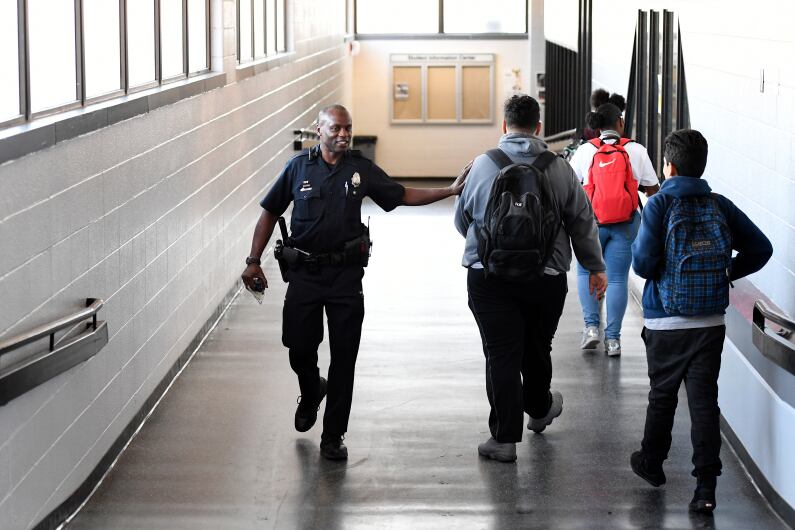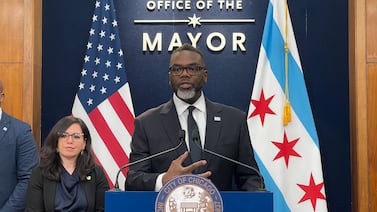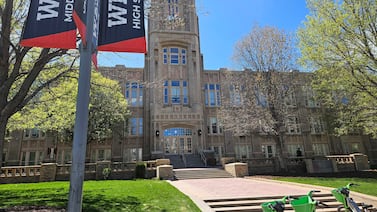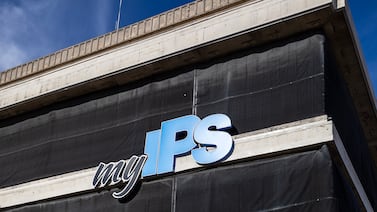Three Denver middle school campuses will eliminate police officer positions this month. The move represents a 25% reduction in the number of school resource officers serving the district and is in line with a directive to eliminate all such officers by the end of the school year.
The Denver school board unanimously passed the directive last June. The vote came after weeks of local and nationwide protests against racist policing sparked by the death of George Floyd, an unarmed Black man killed by a white police officer in Minneapolis.
Board member Tay Anderson, who helped shepherd the resolution to remove police from schools, said Monday that this change “may not be comfortable for all.”
But, he said, “after witnessing time after time again the insurmountable and disgusting treatment of Black Americans and people of color across this country at the hands of law enforcement, this is our opportunity to say we as a district must change the way we practice discipline.”
The campuses losing officers this month — Henry, Lake, and Kepner — are home to six middle schools. Three of the six schools are district-run and three are independent charter schools.
Last year, 17 campuses had school resource officers, who are sworn Denver police officers trained to work with youth and assigned to select middle and high schools. They are separate from the district’s own campus safety officers, most of whom are unarmed.
No police officers have been working in schools this fall, as middle and high school campuses have been closed due to COVID-19. Denver Public Schools has announced tentative plans to reopen secondary school campuses in January if health conditions allow.
In addition to eliminating school resource officers, the school board resolution directed the superintendent to work with community members to craft a district policy that ensures students will no longer be ticketed, arrested, or referred to law enforcement “unless there are no other available alternatives for addressing imminent threats of serious harm.”
Data shows Denver’s Black students are disproportionately funneled into the criminal justice system through tickets and arrests at school.
The policy work is set to happen this winter and spring, and district officials have promised extensive community engagement. The district will also draft a new memorandum of understanding with the Denver Police Department that “clarifies the ongoing but more limited role” of police in schools.
Funds previously earmarked for school police — about $625,000 next school year, according to a district spokesperson — will be redirected to student mental health resources.







